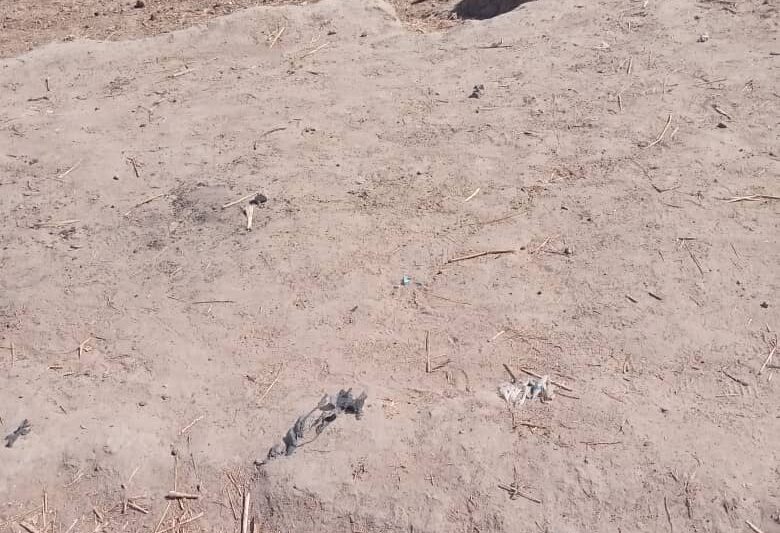Residents face the risks of insurgents, wild animals, salamanders, snakes and scorpions just to find grains eat
Displaced women and children in the Dikwa Local Government Area of Borno State are so hungry that they are digging into ant hills and other insect holes in search of food.
They say they sometimes trek for several kilometres in search of ant holes which they dig into and look for remnants of grains.
This is not a new phenomenon. In fact, it’s an old practice. They say they were taught to do this by older women when there was a shortage of food, or the prices were so high that they could not afford to buy anything to eat.
The women told RNI that they had resorted this practice now because of the high-cost-of-food crisis which is being driven by the devastating effects of climate change, the removal of the fuel subsidy, insecurity, farmer and herder conflicts and the abduction of farmers.
Even though they knew they were often putting their lives and the lives of their children at risk, they said it was necessary and they did not have a choice.
Zainabu Mustapha said: “We normally go into the bushes to dig up the ant hills and holes at about 8am and we often don’t return until late in the evening, mostly after we perform our Maghrib prayers.
“We mainly dig up the ant hills but sometimes, if we cannot find any, we dig up other insect holes we see what we can find to eat. We get at least a bowl or two of grain inside the holes. When we return in the evening, we use our hands to process the grains so that we can cook them and feed our children.
“It is quite scary, but we can’t do anything about it. We have to fend for our needs. Sometimes we do come across snakes and wild animals hiding inside the hills and holes.
“Sometimes we are lucky and we find grains of rice, other times we find millet or even wheat.
“While we are gathering the grains we just take whatever we find. It’s only once we get home in the evening that we go through it and find out if we have collected rice, wheat or millet.”
Zainabu said the women and children had been relying on getting these grains for some time.
“This has been going on since we stopped getting humanitarian aid. There are a lot of people at the Modu Kasa internally displaced persons’ camp in Dikwa and many are women and children.
“One of the problems is that there are so many people digging in ant hills and holes to find something to eat that just about all of the nearby ant hills and holes are empty. That means we have to go far out along the road to Maiduguri and other neighbouring communities.
“I don’t think the non-governmental organisations [NGOs] know how desperate our situation is. We are pleading for humanitarian aid. We need food and other essential items. It’s been very difficult since they stopped helping us and now we are desperate.”
Yagana, a 14-year-old girl, said: “We get our relatives to come with us to the bushes so that we can gather as much of the grains as possible. The more of us there are, the more we find. Afterwards we take it back to our parents who prepare it and we get something to eat.
“We often find scorpions and snakes in the holes and, if we go too far into the bushes, sometimes insurgents chase us.
“But right now, we have no other means of getting food. We have to dig into the holes. Sometimes we gather enough grains to last for two days.”
Falmata Umara told RNI that the women and children waited until 8am when the gates of the camp opened and then they “rush to start our journey for the day”.
“We use hoes to dig into the hills and holes. Mostly we start by carving the sides of the hills before digging deeper. Sometimes the hills are empty and we have to go in search of other hills and holes.
“Usually, we get one to two bowls of grain from two or three hills. It is not always easy to dig into the hills because they are quite hard. But we don’t have a choice so we carry on digging until we break through into the hills. We have to do what we have to do. That’s all there is to it.”
Falmata said sometimes it was “extremely challenging”.
AYSHA MUSTAPHA KOLOMI









